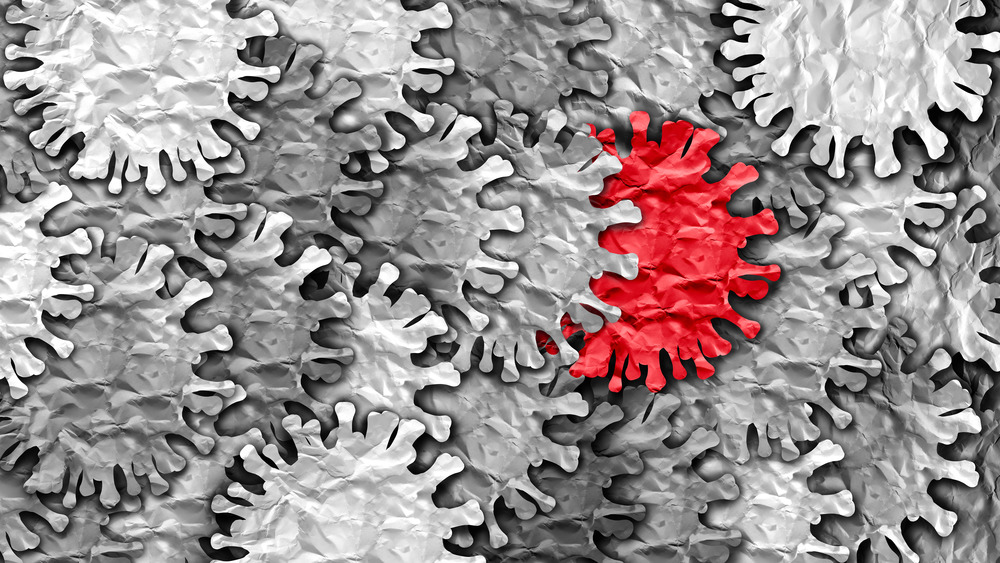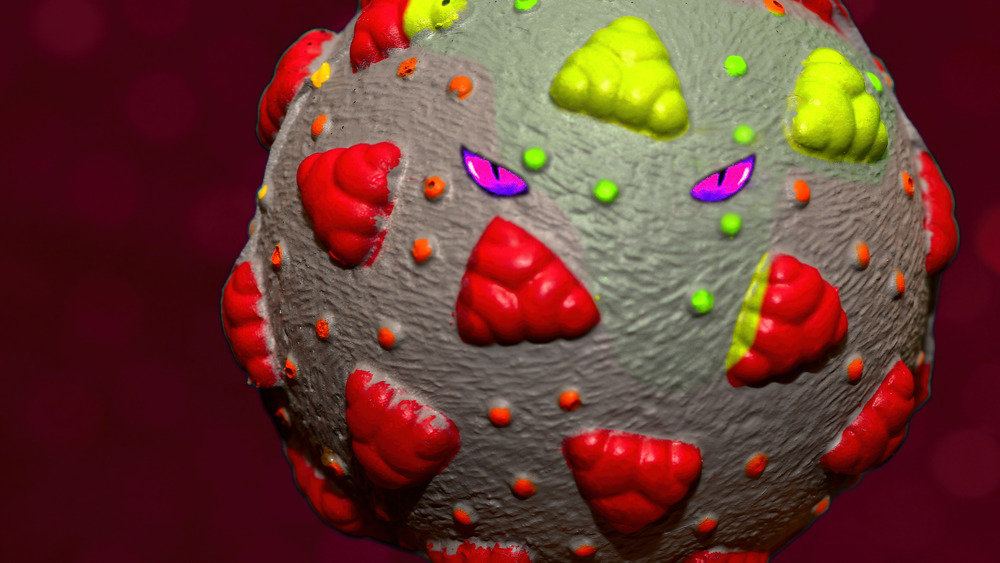How The New COVID-19 Variants Are Different From The Original
Vaccinations against COVID-19 have really ramped up across the United States over the past several weeks. To date, the U.S. Centers for Disease Control and Prevention reports over 100 million doses of COVID-19 vaccines have been administered. The push to get the majority of Americans vaccinated is not only to help slow the spread of disease and bolster the economy, it's also to help stop the emergence of new COVID-19 variants.
While coronavirus variants are becoming increasingly worrisome, their existence is not unexpected. Under ideal conditions, RNA viruses like coronavirus see gradual changes to their genetics. That's why every year, a new flu vaccine is created to address the most prevalent strain of the influenza virus.
While variants have popped up from Brazil, California, and New York City, the B.1.1.7 or UK variant, the B.1.351 or South African variant, and the P.1 Brazil variant are causing alarm amongst the global health community for a few reasons (via CDC).
How the three most worrisome COVID-19 variants differ from the original strain
In January of 2021, researchers determined that the UK variant is not only more transmissible, meaning it spreads more easily, than the original COVID-19 strain, but also more deadly. In fact, the UK variant is believed to be 40 to 70 percent more transmissible than the original strain. When viruses mutate, they do so by learning how to evade the host's immune response and attach to more cells. In this case, these variants have shown mutations in the coronaviruses "spike" proteins. The mutations seen in the UK variant appear to make the virus more "sticky" and thus more able to attack the human host (via Johns Hopkins Medicine).
The South African variant was first detected in the U.S. at the beginning of the year and has some concerned over its ability to evade some vaccines. While not approved for emergency use in the U.S., the Oxford-AstraZeneca vaccine was found, through early data, to provide those inoculated with "minimal" protection against this strain of COVID-19.
The Brazilian variant is also of concern, as this strain appears to have even more mutations when compared to the original strain. Some of its' unique mutations may interfere with its "ability to be recognized by antibodies," potentially evading vaccines as well. However it is not yet known how much protection the approved vaccines have against this strain.
So regardless of where you live, with the emergence of more easily-spread strains, it's important to continue to wear a mask, socially distance, and wash your hands frequently. The fewer people who become infected with COVID-19, the fewer chances the virus has to mutate.


